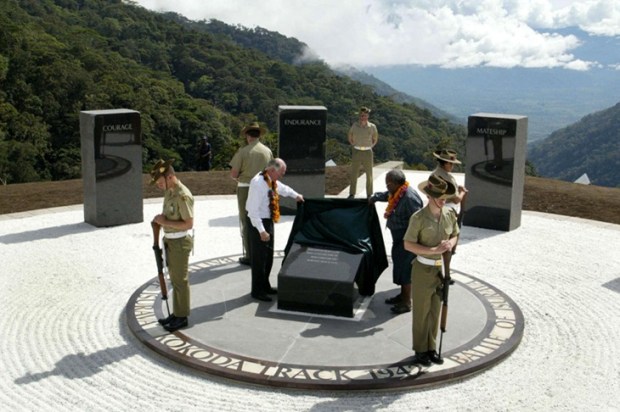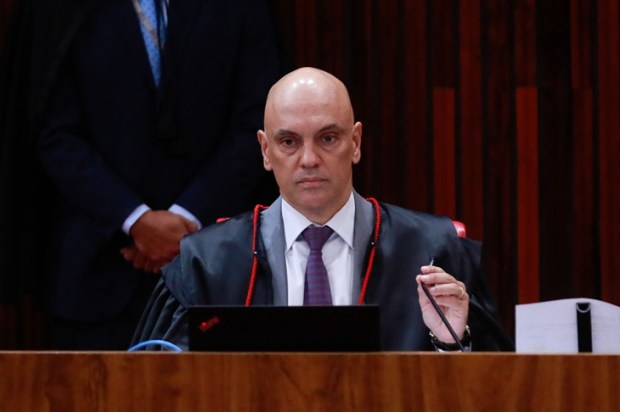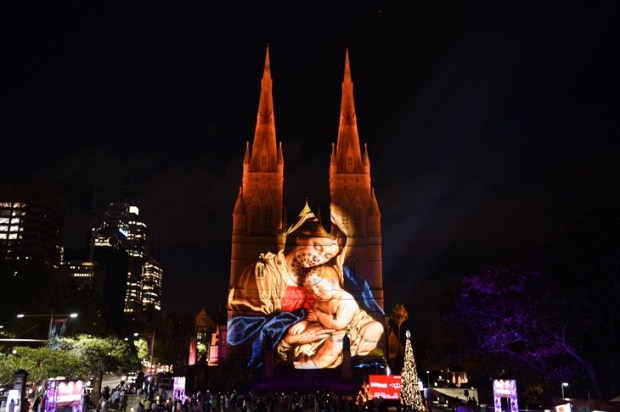Australia’s Prime Minister Anthony Albanese, with the support all the state and territory premiers, has officially backed the ‘First Nations Voice’ – a standing consultative body to advise the government on laws and policies arguably affecting the Aboriginal community but, potentially, the nation as a whole. He says it is a priority for the government to secure a successful referendum that will constitutionally entrench this ‘consultative body’.
In past referenda, Australian governments at least pretended to foster fair debate by providing electors with pamphlets listing the official arguments for and against the proposed changes. At this time, however, says Senator Pat Dodson, the Prime Minister’s special envoy for the implementation of the Voice, ‘The government is not interested to support any racist campaigns, which will have an impact on the question of the pamphlet.’
This seems to confirm what Anthony Dillon, an Australian Aborigine academic, has said about the present discussion of Aboriginal issues. ‘There seems to be no end to where offence can be taken and accusations of racism made,’ he says. Hence, it may be necessary for me to disclose that I am a strong supporter of the right of Australian Aborigines to freely embrace, practise, and celebrate their cultural heritage without governmental interference.
Proponents of an ‘Indigenous Voice’ to Parliament often condone a violation of the principle of equality before the law so as to atone for the alleged systemic violations of equality in the past. And yet, they fail to explain how it is possible to correct past discrimination by ultimately condoning the entrenchment in the Constitution of a divisive system that will violate the equal treatment of all citizens in the future.
The ruling classes of this nation are presently pushing the argument that the constitutional entrenchment of an ‘Indigenous Voice’ to Parliament will be just about providing advice to government on matters affecting the Aboriginal community. However, every single law that goes through Parliament should affect Aboriginal people because they are part of the larger Australian community. Although the Voice, apparently, would only be consulted if proposed laws and policies affect Aboriginal people, such argument is ultimately fallacious because all laws are (and should be) made for all the people of Australia. In other words, matters relating to Aboriginal and Torres Strait Islander peoples basically means ‘everything’. As Nyunggai Warren Mundine AO correctly points out:
‘Indigenous Australians are Australian citizens. There is no law, regulation or policy, nor any act or decision of the Federal government or Parliament, that doesn’t relate to Aboriginal and Torres Strait Islander people. Energy. Mining. Tax. Defence. Natural security. Trade and commerce. Health. Education. Foreign Affairs. All are ‘matters’ relating to Aboriginal and Torres Strait Islander peoples.’
Arguably, ‘A Voice to Parliament will give Indigenous communities a route to help inform policy and legal decisions that impact their lives.’ This presupposes an inherent difference between Aboriginal Australians and non-Aboriginal Australians, which sends an unconsciously racist message that Australian Aborigines will never be more fully integrated as active members of the broader Australian community. After all, why not expect that in the future a person of Aboriginal heritage may actually become our Prime Minister? As Peter Kurti and Warren Mundine remind us:
‘The 2022 federal election saw 11 Indigenous people elected to the Commonwealth Parliament, representing a substantial and talented representation of the country’s Indigenous population. Doesn’t this represent the best possible Indigenous ‘voice’ to the Commonwealth Parliament?’
The Voice is, at heart, a transfer of power that shifts power from Parliament to a race-based constitutionally entrenched body that will be empowered to make ‘representations’ not merely about proposed legislation but also about any act or omission to the Parliament, or the government, or any of its agencies. Despite insisting that the Voice would be merely advisory, as the Prime Minister has admitted, it would have to be a ‘very brave’ government to not accept its ‘advice’. According to Janet Albrechtsen:
‘The Voice will create constant opportunities for a tiny minority of activists to hold Parliament and executive government to ransom by using the immense leverage and opportunities for lawfare carefully woven into the [proposed] Amendment. It is not exaggeration to say it will cause the end of parliamentary democracy as we have known it.’
As can be seen, the campaign for the Voice in Parliament is not just about Aboriginal rights. After all, Aborigines do not lack any legal rights and their primary struggle is with the ingrained habits incentivised by government policies that prevent some from getting a foothold in the Australian economy. Following a successful amendment what will comprise any such rights becomes a matter of constitutional interpretation by the judicial elite. Since unelected judges are part of the ruling elite that is not directly accountable to the people, they are more likely than not to give a small number of activists what they want then are the elected politicians. And yet, according to Keith Windschuttle:
‘Most constitutional critics today regard democracy not as an objective they must pursue but an obstacle they must overcome. For them, it is democracy that is the problem because it gives the majority of ordinary Australians the last word in deciding who governs. In the eyes of those who now dominate our cultural institutions and much of our political leadership, most ordinary Australians are uneducated, uncouth, racist rednecks, and a Constitution that gives people like them such power is unbearably frustrating.’
Having been a legal academic in Australia for more than two decades, and having served for many years as a law reform commissioner in Western Australia, allow me to state that my interactions with the ‘political class and cultural elite’ confirm the absolute veracity of Windschuttle’s statement. The ruling classes have a vested interest in fomenting this divisive racialist agenda, which seriously undermines the important principle of political equality. Their primary goal is not social amelioration of the Aboriginal condition, but to gain a once-in-a-lifetime opportunity to change the Constitution to fulfil their own political ambitions. On the contrary, as Senator Jacinta Nampijinpa Price points out, this is about dividing Australia along racial lines, entrenching Indigenous separatism, and constitutionally enshrining ‘the idea that Aboriginal people are perpetual victims forever in the need of special measures’.
Ultimately, constitutionally enshrining the Voice in the Constitution will ‘lead us down that dark corridor on the basis of race – thus prolonging the sorry history of racial difference’. Indeed, the creation of a separate group to have a ‘voice’ in Parliament engenders distinctions that could poison entire inter-cultural relationships. This would tempt some people to ‘play the race card’ that could further aggravate differences between Aboriginal Australians and all the other Australians. For example, what might co-parenting a child be like when one parent becomes more legitimate than the other in the eyes of the law simply because of his or her culture or skin colour?
Perhaps this is precisely the hidden agenda behind a ‘Voice’ to Parliament: to further divide Australians into lines of culture, origin, and ethnicity so as to facilitate the attainment of more power and control by the ruling elites. Accordingly, some people may have a vested interest in fomenting a socially divisive agenda that ultimately undermines political equality and potentially turns Australians against each other. This is basically a revisitation of the ‘divide and conquer’ strategy so successfully applied by the Romans in ancient times.
Augusto Zimmermann is head of law at Sheridan Institute of Higher Education, in Perth, Western Australia. He is a former commissioner with the Law Reform Commission of Western Australia (2012-2017). He is also a former associate dean (research) at Murdoch University, School of Law. During his time at Murdoch, he taught (and coordinated) the units constitutional law and legal theory, and was awarded the Vice Chancellor’s Award for Excellence in Research, in 2012.
Professor Zimmermann is the co-author of Foundations of the Australian Legal System: History, Theory and Practice (LexisNexis, 2023).

























